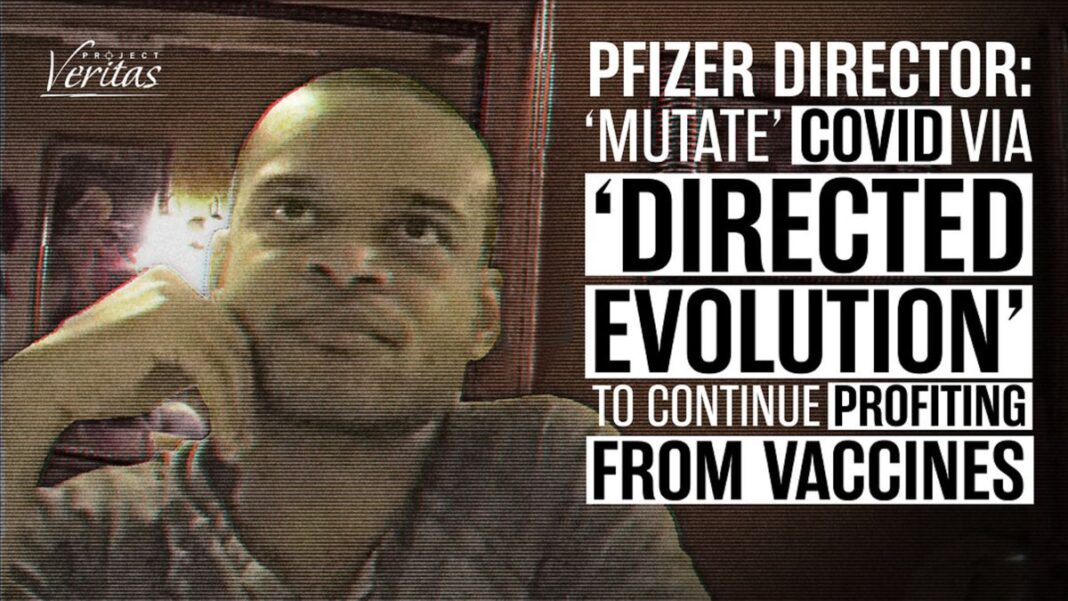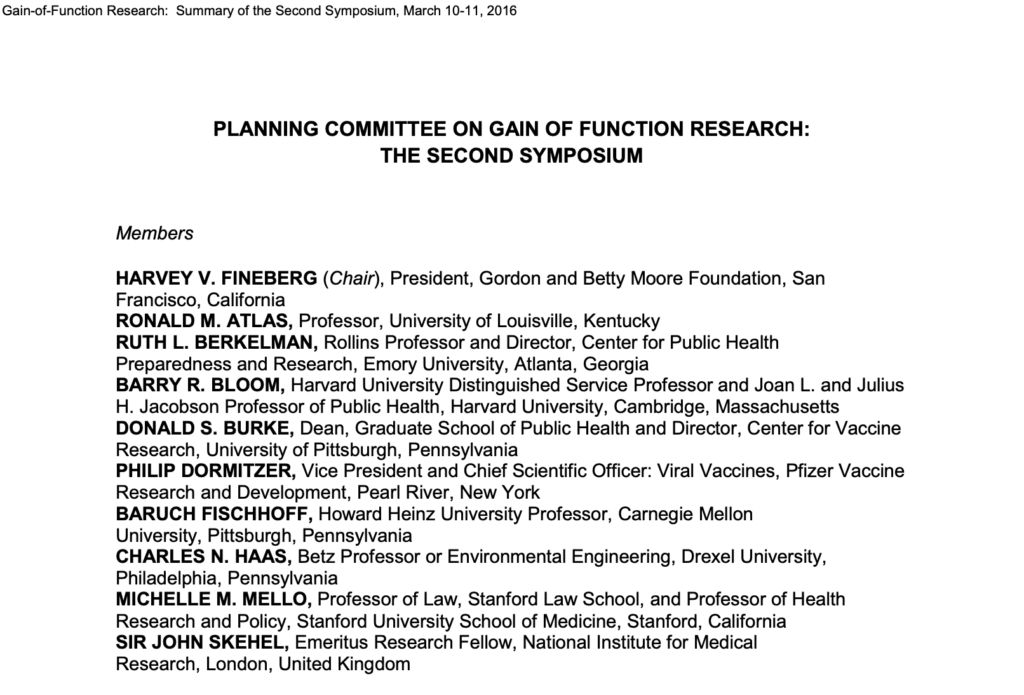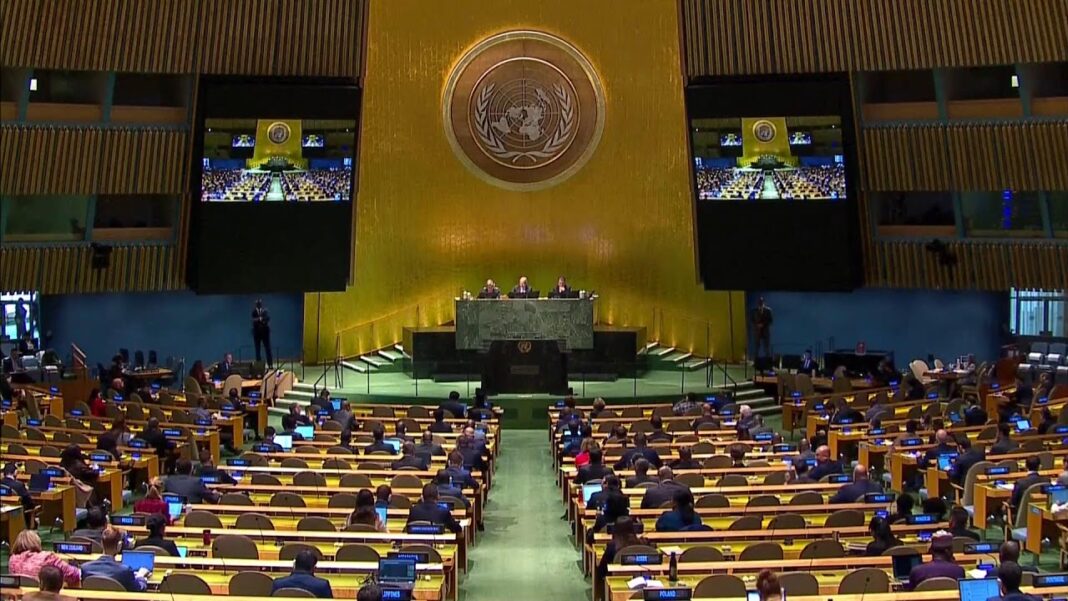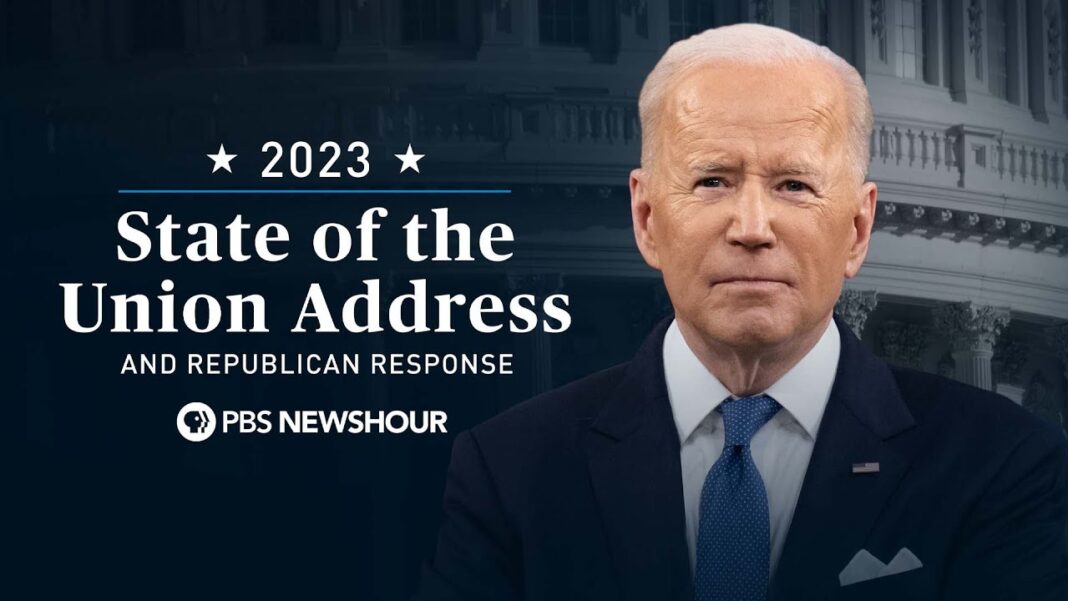Pfizer’s Chief Scientific Officer for Vaccine Research and Development advised the National Science Advisory Board for Biosecurity during the group’s deliberation over redrafting government policies concerning gain of function research.
The unearthed influence of a leading Pfizer employee over the federal government’s approach to regulating gain of function research, which refers to the manipulation of pathogens to become more lethal, virulent, or transmissible to humans, follows a shocking undercover investigation from Project Veritas into the company. The group caught an employee of the pharmaceutical giant and COVID-19 vaccine maker admitting to engaging in the risky form of research to better profit off vaccines.
In light of these claims, the proximity of Pfizer’s Philip Dormitzer to the U.S. government’s effort to redraft its policies surrounding gain of function research in 2016 is curious, as he was working as the Vice President and Chief Scientific Officer for RNA and Viral Vaccines at Pfizer at the time. He held this position from September 2015 to December 2021.
In 2014, the U.S. government announced a pause on funding gain of function research while concurrently launching a deliberative process to develop a new policy aimed at better regulating the risky form of research.
The two “key voices” engaged in the debate were the National Academies, which convened two symposiums to draft and deliberate gain of function policies, and the National Science Advisory Board for Biosecurity (NSABB). The NSABB was responsible for “providing the U.S. government with recommendations on policy for the funding and conduct of gain of function research” and “serving as the official federal advisory body for providing advice on oversight of this area of dual use research.”
Put simply, the National Academies were the most influential advisor to the NSABB, which, in turn, was responsible drafting the government’s new gain of function research policy.
Among the ten members of the National Academy of Science’s Second Symposium was Dormitzer, whose Pfizer affiliations are clearly displayed on official event documents. The symposium was the final event before the NSABB finalized its draft of recommendations and took place in March 2016.
In other words, the event was highly influential over what the NSABB’s ultimate output regarding gain of function research policy would become.
Dormitzer also served as the moderator of a session titled: “Best Practices to Inform National Policy Design and Implementation: Perspectives of Key Stakeholders in the Biomedical and Public Health Communities.”
“Philip Dormitzer from the Pfizer Vaccine Research and Development Unit and a member of the Symposium Planning Committee, introduced the session as a continuation of the earlier plenary session on the U.S. policy landscape. This session would present the perspectives of several different key stakeholders, including regulatory agencies and the vaccine industry,” explained the National Academy of Science’s breakdown of the event.
Summaries of Dormitzer’s contributions consistently appear to reveal a desire for more lax regulation on gain of function research, with the symposium report noting:
“Philip Dormitzer pointed out that not all GOF research involves GOF studies of concern, and therefore not all the research needs to be overseen by any additional policy frameworks.”
“There was an exploration of the impact of over-regulating GOF research for countermeasure development. Philip Dormitzer pointed out that as one of the factors for identifying GOF studies of concern is the absence of effective countermeasures, limiting research that could provide such measures could be counter-productive. There was also consideration of the opportunity costs of not doing research, especially in justifying potential barriers to developing countermeasures,” added the summary.
He also appeared to express concern over potential “blowback” directed towards vaccines in light of discussions about gain of function research:
“Dormitzer closed with some personal observations. One was an increasing need to consider integration of the multiple biosafety and biosecurity regimens. The other was a concern about unintended consequences, for example from the “blowback” onto vaccine production from the controversies over GOF studies of concern—or GOF research more generally—in academia.”
“Dormitzer closed with some personal observations. One was an increasing need to consider integration of the multiple biosafety and biosecurity regimens. The other was a concern about unintended consequences, for example from the “blowback” onto vaccine production from the controversies over GOF studies of concern—or GOF research more generally—in academia.”
By Natalie Winters
Read Original Article on WarRoom.org










